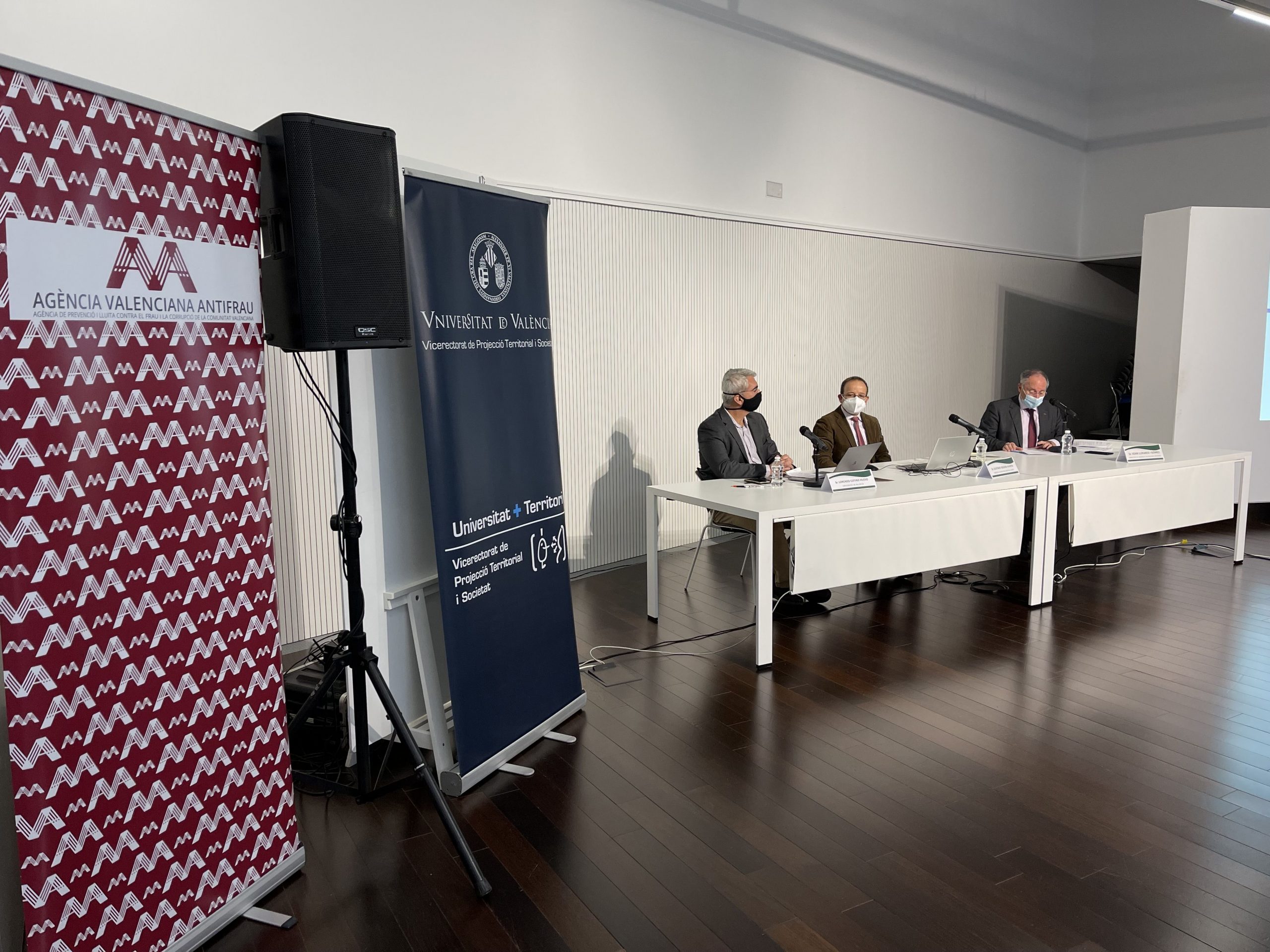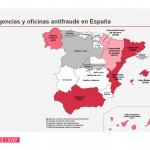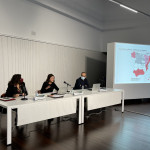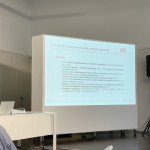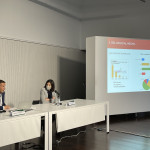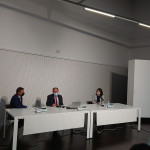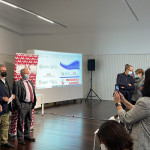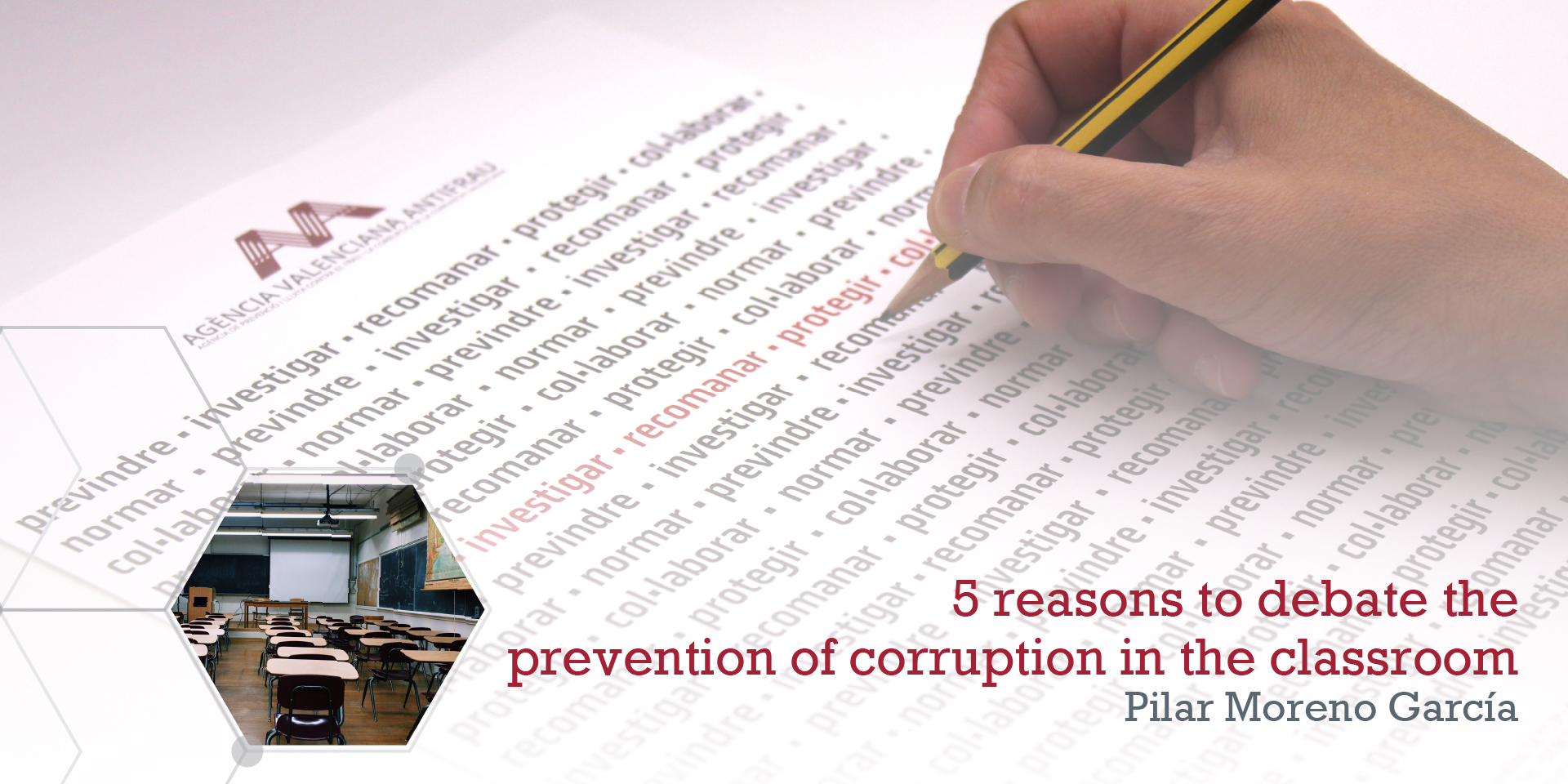“Protection of whistleblowers” gathered in the Old Torrent Market and via streaming around 100 people, including public employees and employees, the university community and citizens interested in the debate on the implications of the obligation to transpose the European Directive 2019 / 1937 on the protection of persons who report violations of Union law, also known as Whistleblowers.
The conference was held within the framework of the existing collaboration agreement between the Vice-Rector’s Office for Territorial Projection and Society of the University of Valencia and the Valencian Anti-Fraud Agency, with the collaboration of the Faculty of Law and the City Council of Torrent.
The Conference was opened by the Mayor of Torrent, Jesús Ros Piles, the Vice-Rector for Territorial Projection and Society of the University of Valencia, Jorge Hermosilla, and the Director of the Valencian Anti-Fraud Agency, Joan Llinares. The three insisted on the necessary institutional collaboration
At the first round table on the protection of whistleblowers and the complaints box in Directive 2019/1937, the moderator was Joan Llinares, director of the Valencian Anti-Fraud Agency. The professor of Constitutional Law at the University of Valencia, Lorenzo Cotino, focused his presentation on the anonymity of the complainants or whistleblowers. He made an interesting tour on the evolution of the term ‘anonymous complaint’ and its introduction or mention from different institutions: Public Prosecutor’s Office, General Agency for Data Protection, State Attorney General’s Office, Supreme Court … pointing out that the great leap is given by Law 11 / 2016 of the creation of the Agency for the Prevention and Fight against Fraud and Corruption of the Valencian Community by expressly acknowledging anonymity. On the other hand, he insisted that information can be transmitted to the administrations by means of the facts so that they are the ones who initiate the files they consider.
For his part, the Director of Analysis and Research of the Agency, Gustavo Segura, focused the presentation on the complaint channels to which the European directive binds and obliges. The EU Directive establishes the protection of individuals as a fundamental objective and it is understood that the highest level of protection is anonymity. The complaint, whether anonymous or not, is a source of information, and by itself does not initiate any procedure. Gustavo based part of the intervention on the experience of the complaints box that the Agency has in operation since mid-2018, and that as indicated by the Directive in its art. 12 is bi-directional and allows anonymity.
The second table, moderated by Anselm Bodoque, head of the Agency’s Training Service, on the importance of anti-corruption agencies within the framework established by directive 2019/1937, was attended by Teresa Clemente, director of Legal Affairs of the Agency, and Fabiola Meco, professor of Civil Law at the University of Valencia.
Teresa Clemente in her presentation made a tour of the regulations that guarantee protection since 2003, the United Nations Convention on Corruption, the Group of States against Corruption until the European Directive 2019/1937 approved unanimously by the European Council. He presented the network of regional or local anti-fraud offices and agencies in the Spanish territory, mentioning the institutional declaration that urges the competent institutions of the Spanish state to transpose the directive into their own legal system. For this, he used a tour of the different initiatives of political groups. As in the previous intervention of the Agency, part of the presentation was based on the experience of 4 years attending requests for protection of whistleblowers, with only 2 cases of protection contested. The AVAF currently has 26 people who have been granted protection status.
Professor Fabiola Meco, for her part, based the presentation on explaining how a pioneering law was forged and was three years ahead of the European Directive. He emphasized the context of the moment -social, political and normative- since it visualizes the importance of the objectives for a cause that has the general interest and the people at its center. Context in which the fight against fraud and corruption was understood as the axis of change, and it materialized in the Law creating the AVAF. He pointed out the meeting points and disagreements at the moment of gestation, as well as those essential points: independence of the Agency, adequate resources, protection of the complainant, sanctioning power. All this to conclude with the need for a Valencian system of public integrity: respect, collaboration and institutional loyalty.
The closing conference was given by the professor of Political Science and Administration of the University of Murcia, Fernando Jiménez, accompanied at the table by Rosario Serra, professor of Constitutional Law at the University of Valencia. The speaker structured his participation in the obligations, implications and obstacles of the European Directive. From there, he spoke of the complaint channels, internal and external, as safe, confidential and effective channels. And the protection of whistleblowers by guaranteeing non-retaliation, support measures and sanctions. I underline the need to encourage and protect those who report truthful irregularities, as well as to promote the necessary training to achieve a cultural change. He ended the intervention with examples that highlight the risk of certain concessions or inconsistencies that jeopardize the investigation procedures, as well as the independence of the agencies.
The day in Torrent closed Joan Llinares, the director of the Valencian Antifraud Agency, recognizing as essential the academic and social discussion to improve the forms of prevention and fight against practices of corruption and fraud in the management of public affairs, as well as the debates basic to strengthen civic education and collective public ethics. And once again he thanked the necessary institutional collaboration to make possible conferences like the current one to publicize not only the international regulatory framework that obliges us, but also the work that is already being carried out.
Video of the UV-AVAF Conference “Protection of whistleblowers” on November 16, 2021 in Torrent.


